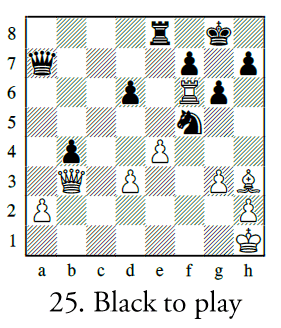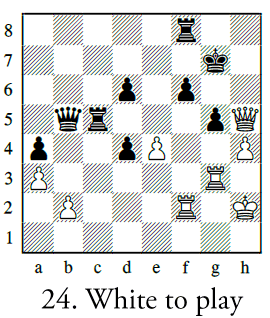The difficulty of being Black
In a recent review of Nikos’s and my book Playing the French (on ChessVibes and Chess.com), the reviewer Arne Moll expresses some doubt about our understanding of practical chess. You can read the review if you are interested in the detail of the argument and in my reply (given below). But I wanted to give a little thought to the difficulty of being Black in general.
As most of you will have noticed, playing an inferior position is perilous. A mistake in a slightly better position can be annoying, but a mistake in an inferior position can land you in trouble you cannot solve. I will write more about this in the near future, but for now let us just continue as if this hypothesis is indeed a fact.
When you are Black your games will in general fall into two categories. Either your opponents will play sidelines or mainlines. This leads to two different challenges.
Mainlines have a tendency to lead to positions where accuracy is important. New ideas will exist in most positions, but mainlines are popular because of the pressure they put on Black (and Black’s success in neutralizing it). For this reason we often need a lot of theoretical knowledge to defend the black side. It is either this or risk your life in variations where you are worse and the problems you have to solve are harder to solve (because deciding between two inferior positions is harder than deciding between a decent and an inferior position).
Sidelines tend to offer you a number of decent options, all of them leading to decent positions. Unless White has played something problematic, he will not be worse either. In such situations exact knowledge usually decreases in value. Unless we play correspondence chess, it is almost impossible to anticipate what sidelines you will face in your next few tournaments, so extensive knowledge has a tendency to be overkill. Working on your problem solving abilities will be more likely to help you once you end in a respectable sideline.
This is the approach Nikos and I chose for our book. This is the philosophy behind it. It is absolutely up for debate, but our approach is not random.
For the full review of Playing the French, go to: review
Reading this review, I felt it was one long question, asking: why did they offer this line? This post below is my answer, not meant as a criticism of the reviewer. Read more…


Recent Comments